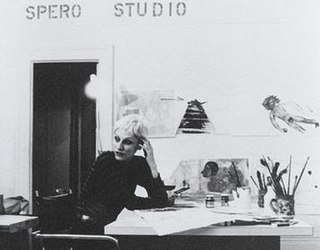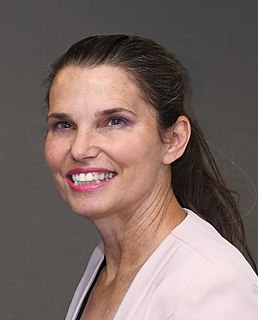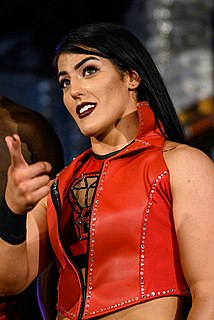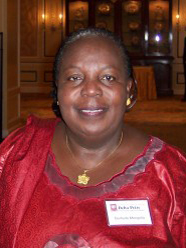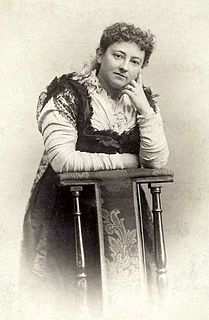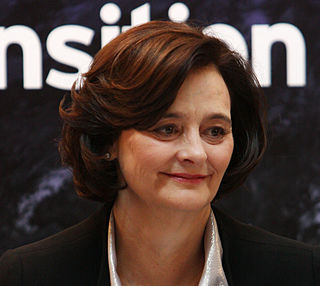A Quote by Nancy Spero
I've always sought to express a tension in form and meaning in order to achieve a veracity. I have come to the conclusion that the art world has to join us, women artists, not we join it. When women are in leadership roles and gain rewards and recognition, then perhaps 'we' (women and men) can all work together in art world actions.
Related Quotes
Women had to work like slaves in the art world, but a lot of men got to the top through their charm. And it hurt them. To be young and pretty didn't help a woman in the art world, because the social scene, and the buying scene, was in the hands of women - women who had money. They wanted male artists who would come alone and be their charming guests. Rothko could be very charming. It was a court. And the artist buffoons came to the court to entertain, to charm. Now it has changed, now the younger men are in - older women and younger men.
If you just look at the number of roles for women versus the number of roles for men in any given film, there are always far more roles for men. That's always been true. When I went to college, I went to Julliard. At that time - and I don't know if this is still true - they always selected fewer women than men for the program, because there were so few roles for women in plays. That was sort of acknowledgment for me of the fact that writers write more roles for men than they do for women.
I want to get young girls excited in science, tech, engineering mathematics, art, design - and how they come together. We've got this Choose Science campaign. Once women are there, though, we have to retain them. When I look at universities, it's not enough to have role models, we need to have champions. We need to have more women in senior leadership positions. There are issues about work-life balance. Women go to have children and then who keeps the lab running? There are many challenges.
There still aren't enough[ roles for women of color]. And I'd say that's the case, not only for African-American women, but for all women in the Hollywood game. It's just slim pickings, and a very challenging time for us. I think that's why more of us need to work our way behind the camera in order to create roles that really illuminate who women are. We still have room for growth in that area, without a doubt.
Join the bold, the brazen, the unintimidated. Join not having excuses. Join the idea that fun is the source of all joy. Join the unwillingness to give up. Join doing things your way. Join not joining. Join that purpose is stronger than outcome. Join your gut. Join the constant challenge of seeking greatness. Join play. Join the hunger to find what makes you happy. Join karma and nature and the effect you have on your world. Join your philosophy. Join something bigger than you. Join what you believe.
Women have full equality with men before the Lord. By nature, the roles of women differ from those of men. This knowledge has come to us with the Restoration of the gospel in the fullness of times, with an acknowledgment that women are endowed with the great responsibilities of motherhood and nurturing.
I have always felt that perhaps women have sometimes almost embraced the same values as men, and the same character as men, because they are in the men's world, and they are trying to fit into a system that men have created. And maybe in truth when there is a critical mass of women who play that role in governments, then we will see whether women can really manage power in a way that is less destructive than the way that men have used power.
We all enter the world little plastic beings, with so much natural force, perhaps, but for the rest--blank; and the world tells uswhat we are to be, and shapes us by the ends it sets before us. To you it says--Work; and to us it says--Seem! To you it says--As you approximate to man's highest ideal of God, as your arm is strong and your knowledge great, and the power to labour is with you, so you shall gain all that human heart desires. To us it says--Strength shall not help you, nor knowledge, nor labour. You shall gain what men gain, but by other means. And so the world makes men and women.
If art is not to be life-enhancing, what is it to be? Half the world is feminine - why is there resentment at a female-oriented art? Nobody asks The Tale of Genji to be masculine! Women certainly learn a lot from books oriented toward a masculine world. Why is not the reverse also true? Or are men really so afraid of women's creativity?
The thing I want to see before I die is women achieving full equality in the world. I'm very passionate about injustice against women and there's too much of it in the world. In so many parts of the world, women are not regarded as worthy or equal to men. In parts of the world, women are bought and sold.
Marjan. I have told him tales of good women and bad women, strong women and weak women, shy women and bold women, clever women and stupid women, honest women and women who betray. I'm hoping that, by living inside their skins while he hears their stories, he'll understand over time that women are not all this way or that way. I'm hoping he'll look at women as he does at men-that you must judge each of us on her own merits, and not condemn us or exalt us only because we belong to a particular sex.
